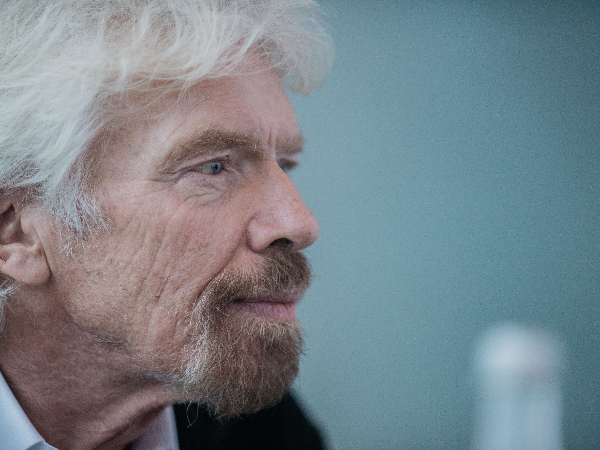Is Virgin Orbit's falling share price a cautionary tale for 2022?
2021 saw a record number of SPAC and IPO launches across US stock exchanges. But half are trading below their initial prices. And with Virgin Orbit already down 20%, could the lustre of new listings be losing its appeal?

Source: Bloomberg
The Virgin Orbit (NASDAQ: VORB) SPAC launched on Thursday, with the company expecting the cash splashing enjoyed by the likes of Rivian, Lucid, Coinbase, Roblox and Robinhood. But unfortunately for the newcomer, its listing did not go according to plan.
And this came as a surprise to some investors. The number of companies going public hit a record high in the US in 2021. According to SPAC Analytics, there were 968 Initial Public Offerings (IPO) and 613 SPACs. Compared to historical values, these numbers are simply astronomical.
The SPAC explosion
Up until 2020, it was common for smaller propositions to be bought out by a larger competitor. But pandemic-induced ultra-loose monetary policy combined with $3.5 trillion covid-19 pandemic relief funding has sent almost every market index in the US to record highs.
For smaller companies considering whether to merge with a competitor or go it alone, the scales are now finely balanced. The higher valuations of 2021 meant that initial listings generated significantly more money than in the past.
Moreover, the rising popularity of Special Purpose Acquisition Companies (SPACs) has made listing easier. A SPAC is a company specifically created for another company to merge with to list on the stock market. The process is much faster than an IPO, and because the initial share price is negotiated in advance, the company isn’t held hostage to market conditions.
However, there are setbacks to the process. Because they are less strongly regulated, there’s often weaker financial due diligence. And shareholder dilution along with potential capital shortfalls can mean that additional capital must be raised through private investment in public equity (PIPE).
And worryingly, S&P Global Market Intelligence data shows that half of the US’s 100 largest new listings in 2021 are trading below their offer prices.

Source: Bloomberg
Virgin Orbit share price: SPAC listing
Virgin Orbit is a spin-off from Richard Branson’s Virgin Galactic, which itself was listed in 2019. In advance of the listing, CEO Dan Hart commented that ‘we’ve built Virgin Orbit in order to change the business of satellite launch and to open space for everyone, globally.’
But while Virgin Galactic’s stock market entry was a commercial success, Virgin Orbit only raised $228 million, less than half the $483 million expected. And SPAC investors only contributed $68 million, compared with $383 million originally anticipated. Immediately prior to the listing, Branson’s Virgin Group announced it would inject as much as $100 million into the company to close the deal— and this has now increased to $160 million.
And while the festive timing of Virgin Orbit’s launch may be partially to blame, it’s already down 20% from $10 to $8 per share. The company blamed the fall on ‘market conditions,’ saying that ‘we’re fighting against some pretty big headwinds.’
But the company has developed what it calls ‘the world’s first air-launched, liquid-fuelled launch system’ to deliver satellites into space. Using a customised Boeing 747 aircraft as a mobile launch site the company argues that its ‘simple and reliable LauncherOne rocket achieves a significant performance advantage over grounded launch sites.’
It’s already delivered satellites for NASA and the US Department of Defense and has cited its ‘ability to launch responsively from any location around the world’ as unique for ‘defense and national security applications.’ Moreover, it’s also contracting with space agencies in the UK, Brazil and Japan.
And the start-up has serious backers, including Abu Dhabi investment fund Mubadala, as well as Hart’s former employer Boeing, and AE Industrial Partners. Mubadala’s Executive Director of Growth Abdulla Shadid believes the company ‘is a game changer for the small satellite launch and space solutions industry.’
But while the business case appears sound, there are several good reasons why Virgin Orbit has struggled to lift off the ground. To start with, Branson has already had to medicate Virgin Atlantic with a £400 million cash injection as the outlook for global travel darkens.
And while Virgin Galactic hit $56 a month before the billionaire’s trip to space in July 2021, it’s since collapsed to $13 as new launches have failed to materialise. Meanwhile, the other space companies listed in 2021— Rocket Lab, Planet Labs, Astra Space and Spire Global— have all seen serious price falls. Of course, having been burnt four times this year, institutional investors may simply be waiting for a better price before buying in.
The likes of Stripe, TikTok, and Reddit can still expect significant investor interest in 2022. But Virgin Orbit’s share price fall could be a cautionary tale. Smaller listings may not receive the red-carpet treatment going into 2022.
Be the first to discover exciting IPOs – trade pre-IPO or invest at the IPO price ahead of the listing – with the UK’s No.1 trading provider* Create a live account to trade the newest IPOs or find out more about IPO trading with us
* Trade pre-IPO with grey markets and invest at the IPO price with primary market access
Charles Archer | Financial Writer, London
04 January 2022






0 Comments
Recommended Comments
There are no comments to display.
Create an account or sign in to comment
You need to be a member in order to leave a comment
Create an account
Sign up for a new account in our community. It's easy!
Register a new accountSign in
Already have an account? Sign in here.
Sign In Now